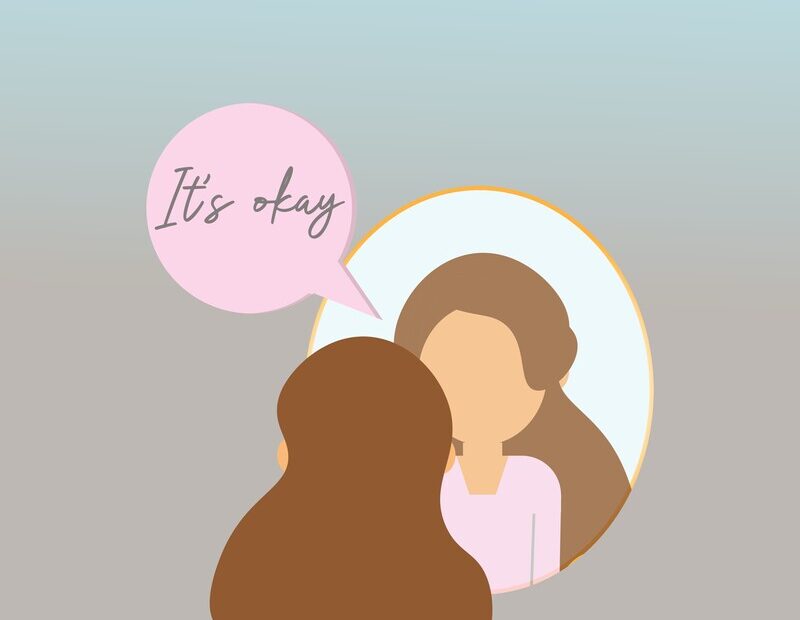According to Kristen Neff, a self-compassion researcher1, self-compassion involves “being open to and moved by one’s own suffering, experiencing feelings of caring and kindness toward oneself, taking an understanding, nonjudgmental attitude toward one’s inadequacies and failures, and recognizing that one’s experience is part of the common human experience”.
Self-compassion has been shown by research1 to be a positive way to cope with negative events.
What are the components of self-compassion?
There are thought to be six components of self-compassion:
- Self-Kindness (e.g. “when I’m feeling emotional pain, I try to be loving toward myself”)
- Self-Judgment (e.g. “when bad things happen, I tend to blame it on my own flaws and inadequacies”)
- Common Humanity (e.g. “I accept my failings as being part of what it is to be human”)
- Isolation (e.g. “when I think about my own flaws and inadequacies, it tends to make me feel different and more separate and cut off from society”)
- Mindfulness (e.g. “when something bad happens, I try to take a balanced view of the situation – a big picture perspective – like someone witnessing it”)
- Over-Identification (e.g. “when bad things happen, I tend to obsess and fixate on everything that’s wrong and my part in it”).
Research by Breines and Chen2, (2012) showed that people who are self-compassionate to themselves after failing at something are more motivated to improving themselves than people that aren’t self-compassionate.
How is it different to self-confidence?
Being honest with oneself instead of putting on a fake bravado of self-confidence, may be a key to happiness. Being overly self-confident is in a sense the opposite of self-compassion because what bolsters that confidence is often the result of being negative. For example, being judgmental of others. Or blaming anyone that tries to make you feel less than ideal. Or blaming external factors rather than accepting that often we are part of the problem. So when negativity comes, a person who is more self-compassionate can be less devastated by it than someone who is falsely self-confident.
How can self-compassion help with stress?
A more recent study3 on college students found that “individuals—who are resourceful, responsible, and principled …—take a kind and understanding stance toward themselves when facing stressful events will have higher possibility of avoiding perceived stress.” If students practice the self-kindness and mindfulness aspects of self-compassion, they won’t be as likely to be stressed.
So if you feel you are suffering from stress, anxiety or depression, talk to a psychiatrist or counselor about how you can practice self-compassion. Learn how to be more mindful and more kind to yourself particularly when bad things happen.
Research:
1 www.ncbi.nlm.nih.gov/pmc/articles/PMC2914331/
2 https://citeseerx.ist.psu.edu/viewdoc/download?doi=10.1.1.362.5856&rep=rep1&type=pdf
3 https://journals.sagepub.com/doi/10.1177/00368504211011872

